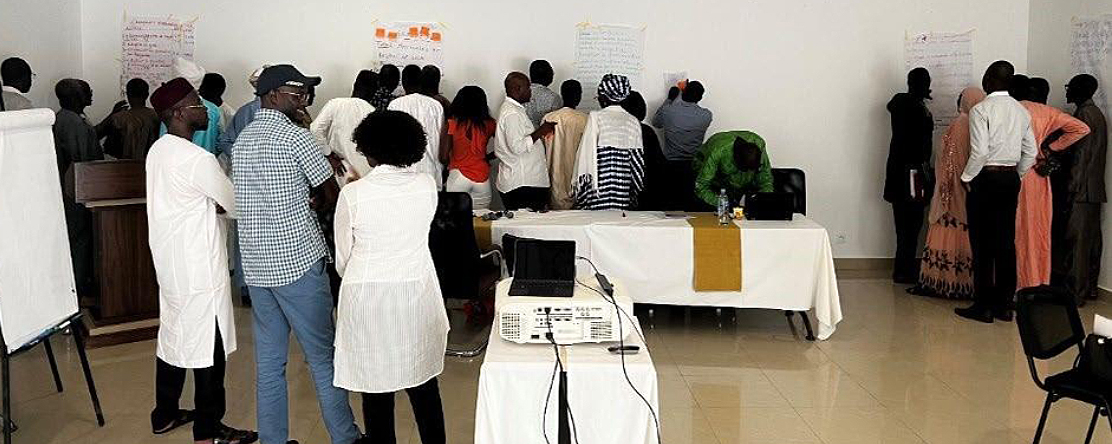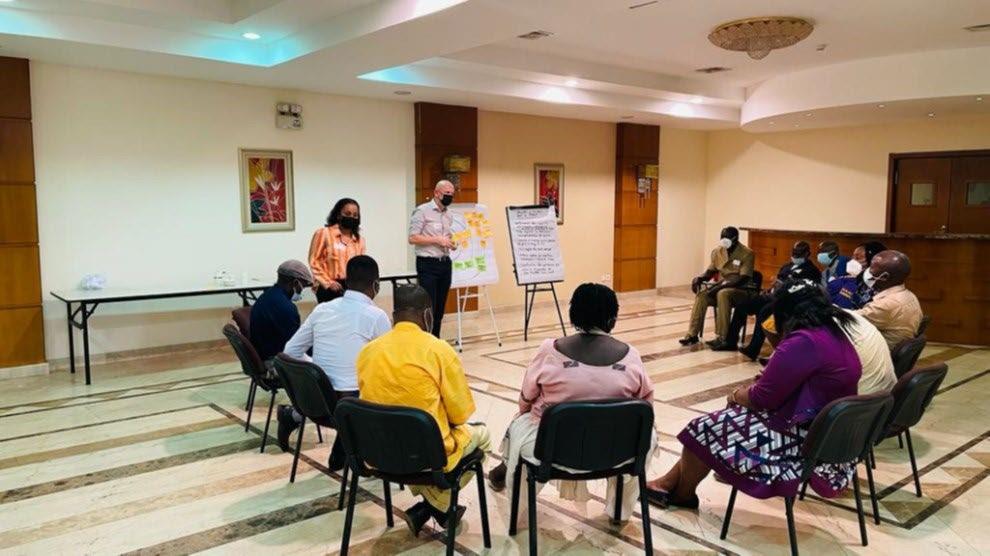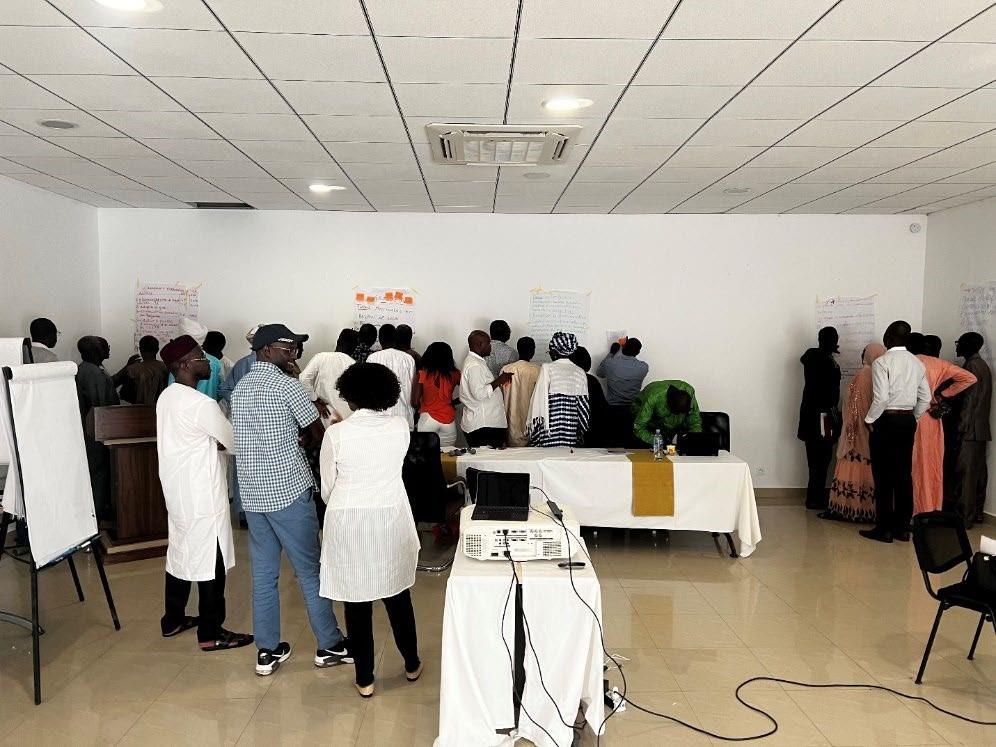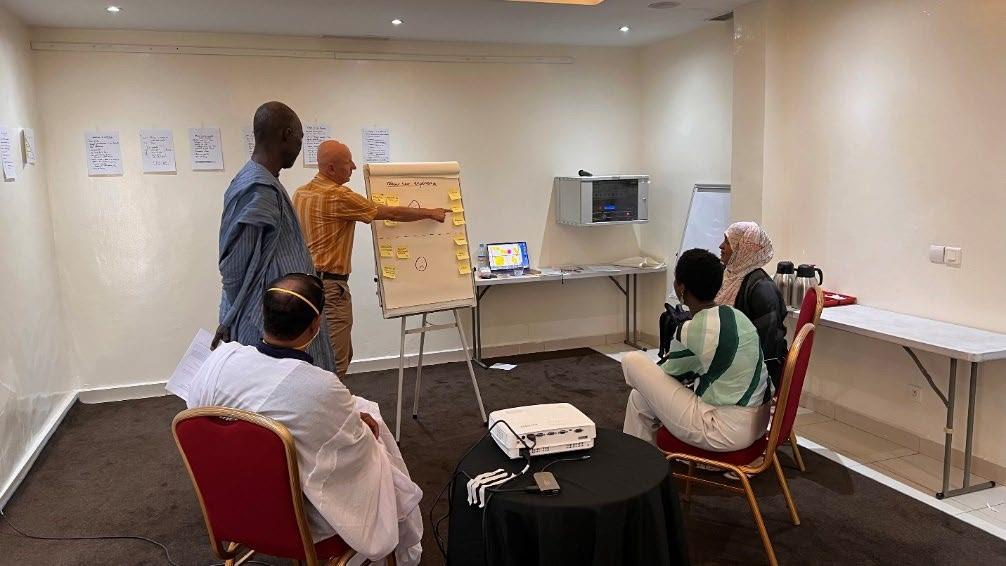
Sustaining Technical and Analytic Resources (STAR) Year Four Program Performance Report
-
Focus Areas
Capacity Building & Leadership, Communicable Disease Prevention, Global Health -
Issues
Workforce Development -
Expertise
Leadership Development, Research – Quantitative -
Programs
Sustaining Technical and Analytic Resources (STAR) -
Strategic Initiatives
COVID-19

Sustaining Technical and Analytical Resources (STAR) is a project of the Public Health Institute (PHI) in partnership with the University of California, San Francisco (UCSF), supported by the US Agency for International Development (USAID).
Through fellowships, internships, and strategic partnerships, STAR supports building the capacity of diverse global health professionals and organizations at all levels to make inclusive, collaborative and innovative contributions to global health. STAR participants and partners collaborate in the development of systems and tools that strengthen and sustain local and global health responses to better address diseases, epidemics and pandemics in resource variable settings.
In 2022, STAR completed the fourth project year with continued progress in achieving planned programmatic goals and maintaining support for participants. This report summarizes their progress, impact stories, lessons-learned and other takeaways.
Key Team Updates
STAR teams collaborated in PY4 to continue providing consistently strong recruitment to USAID and performance management, learning and administrative support to participants. Key activities and results included:
- Recruitment & Outreach (RO): In PY4, STAR filled 24 fellowship positions and 29 internship positions. As a result of implementing masked recruitment in PY4, the program saw a significant increase in diversity among Intern hires. Indeed, this year’s Intern diversity numbers demonstrated that masked recruitment is a worthwhile process to invest in, with the program showing the strongest diversity numbers since its inception. Of note, Internships saw a 21 percent increase in the hiring of African Americans from the previous year and a 10 percent increase from the previous year of the Latino/Hispanic hires. The number of hires for two or more races increased from five percent to 10 percent. A series of deliberate and effective strategies were used throughout the program that enabled an increase in diversity numbers.
- Performance Management: STAR continued to implement participant orientation and quarterly check-in processes. Orientation content was regularly refined and tailored to the needs of the participant. The Performance Management (PM) team oriented 56 participants and facilitated the extension process for eligible fellowships and internships. PM worked closely with Recruitment on development of job descriptions and with the Learning team on identifying participant learning needs and planning learning events.
- Learning: Support to participants in PY4 continued to prioritize individual learning, curated group learning experiences, and networking. There were two core webinars –navigating the role of technical advisor as linchpin in Global Health and elevating the voices and perspectives of Women in Global Health. For both sessions, 100 percent of respondents indicated that they found the event relevant professionally, exceeding the target. In addition, the piloted Learning and Leadership Circles were expanded, and 13 additional participants were trained as facilitators. Three groups delivered a total of 14 sessions, covering five topics. To date, STAR has trained 18 participants as facilitators. They have reported increased confidence and ability to facilitate meetings and learning conversations.
- Communications: Communications (Comms) continued to uphold and promote the brand image of STAR and to improve communication flow, internally and externally, within the global health community. Comms partnered with STAR internal team members to develop content providing a consistent, focused, and impactful message. Comms conceptualized and produced an array of targeted material to promote webinars, satellite sessions, and STAR participant-only events. Comms connected with external audiences through outreach activities promoted through social media, STAR listserv direct mail, STAR website, and other targeted communications. In this period, STAR generated more than 250 new pieces of marketing, technical, and branded material for use in various media platforms, including print, social media, and the STAR website. Thirty-two STAR-generated resources were made publicly accessible, including seven resources added in PY4.
- Global Operations: The Global Operations (GO) team onboarded 26 Fellows and 25 Interns across 15 countries. GO also provided ongoing support to 60 local country nationals (LCNs) and 19 third country nationals (TCNs) across 35 countries through PHI’s vendors Atlas Global Services (formerly Elements Global Services) and Velocity Global, including five countries that were new to STAR – India, Panama, Armenia, Sierra Leone, and Canada. The GO team evacuated one Fellow from Ukraine ahead of the Russian invasion and was in regular contact with Fellows based in the neighboring country of Moldova. The GO team continued to lead PHI and STAR efforts to support former Fellows and their families following the Taliban takeover of Afghanistan.
- Partnership Engagement: STAR partnerships continued through the reporting period, including with UCSF, focused on COVID-19 technical assistance, Purdue University to support a second Global Health Equity Pharmacy Fellow, Tangible Development to continue implementing DEIA activities with USAID/GB as a whole, with specific support to OHA and PRH, the Packard Foundation in India to support its office staff and build organizational effectiveness among adolescent sexual and reproductive health grantee partners, AMP Health to build capacity among Ministries of Health (MOH) in leadership and management, and SUNY Stoney Brook to support an Intern in OHA. Through these partnerships and those that existed before this period, STAR has fully achieved its cost share requirement of four percent.
- STAR-UCSF: While continuing to support the USAID response to COVID-19, STAR-UCSF’s focus shifted a bit from technical assistance around emergency, critical care and oxygen support, to developing and promoting global goods for appropriate management of care for people with COVID-19. STAR-UCSF continued to build and maintain online knowledge hub portals, such as OpenCriticalCare.org, worked with other implementing partners (IP) and USAID to develop the Test-to-Treat (T2T) algorithm, provided remote technical assistance to implementing partners (IPs) and in-country partners by expanding a suite of freely available online resources that address key questions in COVID-19 case management and Oxygen (O2) ecosystem strengthening, and began designing review protocols for T2T and O2 Ecosystem pilot activities being implemented in multiple countries. All indicators were on track.
- AMP Health: In October 2021, a partnership with AMP Health launched to build leadership and management capacity among National Malaria Program (NMP) teams so they are better able to deliver on their objectives, including the effective use of Global Fund investments. Throughout the reporting period, AMP successfully recruited and onboarded Management Partners (MPs) to work in Ministries of Health (MOH) in five countries: Central African Republic (CAR), Chad, Mauritania, Namibia, and the Republic of Congo. MPs rapidly developed trusting relationships with the teams into which they were embedded, through experiential learning sessions, carrying out situation assessments, and monitoring, evaluation, and learning (MEL) assessments to inform specific leadership and management learning opportunities in the partner MOH teams. All indicators were on track.
- Administration and IT: In PY4, the IT & Administration (IT&A) team focused on increasing the efficiency and security of the work-from-home (WFH) environment. Updates were made to STAR’s cloud-available directory management system to allow for easier monitoring on the administrative side and easier options on the user side to self-manage password changes and access control. The IT&A team also continued to support staff and participants remotely with software and hardware solutions, shipping and logistics, and executing a new policy instituting an allowance for office supplies and peripheral equipment. Multi-factor authentication (MFA) was introduced to STAR systems to increase data security. The team also held trainings for staff to introduce these concepts and instruct our staff on usage. STAR’s Information Management and Reporting System (IMARS) was further developed to support cross-team work. Finally, IT&A and the Global Operations (GO) team further developed a synergistic relationship by introducing a new hybrid position combining the compatible duties of the Administration Assistant and the Global Operations Coordinator.
The STAR project is implemented by the Public Health Institute (PHI) in partnership with the University of California San Francisco (UCSF) and Aspen Management Partnership for Health (AMP Health).
Work With Us
You change the world. We do the rest. Explore fiscal sponsorship at PHI.
Support Us
Together, we can accelerate our response to public health’s most critical issues.
Find Employment
Begin your career at the Public Health Institute.





